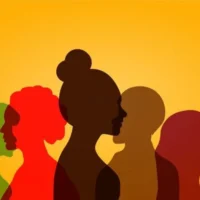Youth empowerment is a multifaceted concept that the United Nations (UN) defines as the process through which young people gain the ability, authority, and agency to make decisions and implement change in their own lives and communities. This definition emphasizes the importance of equipping youth with the necessary skills, knowledge, and confidence to take charge of their futures. The UN recognizes that empowering youth is not merely about providing them with opportunities; it is about fostering an environment where they can actively participate in decision-making processes that affect their lives.
This includes promoting their rights, enhancing their access to education, and ensuring their voices are heard in both local and global contexts. Moreover, the UN’s definition extends beyond individual empowerment to encompass collective action. It acknowledges that when young people are empowered, they can mobilize their peers and communities to address social issues, advocate for change, and contribute to sustainable development.
This collective empowerment is crucial in addressing global challenges such as poverty, inequality, and climate change. By fostering a sense of agency among youth, the UN aims to create a generation that is not only aware of its rights but also equipped to advocate for them effectively.
The Role of NGOs in Youth Empowerment According to the UN
Non-Governmental Organizations (NGOs) play a pivotal role in the UN’s vision of youth empowerment. They serve as intermediaries between young people and the broader societal structures that influence their lives. NGOs often have the grassroots connections and local knowledge necessary to understand the unique challenges faced by youth in various contexts.
By leveraging these insights, NGOs can design and implement programs that address specific needs, whether it be through education, vocational training, or mental health support. The UN recognizes that NGOs are essential partners in creating inclusive spaces where young people can express themselves and engage in meaningful dialogue. Additionally, NGOs often act as advocates for youth rights at national and international levels.
They work tirelessly to ensure that the voices of young people are included in policy discussions and decision-making processes. This advocacy is crucial for holding governments accountable and ensuring that youth perspectives are considered in the formulation of policies that affect their lives. By collaborating with the UN, NGOs can amplify their efforts, gaining access to resources, networks, and platforms that enhance their impact on youth empowerment initiatives.
Collaborative Efforts between the UN and NGOs in Youth Empowerment
The collaboration between the UN and NGOs in youth empowerment is characterized by a shared commitment to fostering an environment where young people can thrive. This partnership often manifests through joint initiatives, programs, and campaigns aimed at addressing the diverse needs of youth across different regions. For instance, the UN’s Youth 2030 strategy outlines a comprehensive approach to youth empowerment that includes partnerships with NGOs to implement programs focused on education, employment, health, and civic engagement.
These collaborative efforts ensure that resources are utilized effectively and that interventions are tailored to the specific contexts in which they are implemented. One notable example of this collaboration is the UN’s partnership with various NGOs during the COVID-19 pandemic. Recognizing the disproportionate impact of the crisis on young people, the UN worked alongside NGOs to develop targeted responses that addressed issues such as mental health, access to education, and economic opportunities.
By pooling resources and expertise, these organizations were able to create innovative solutions that not only supported youth during a challenging time but also laid the groundwork for long-term empowerment strategies.
Challenges and Opportunities in UN-NGO Collaboration for Youth Empowerment
While the collaboration between the UN and NGOs presents numerous opportunities for advancing youth empowerment, it is not without its challenges. One significant hurdle is the disparity in resources and capacities between large international NGOs and smaller grassroots organizations. Larger NGOs often have more access to funding and networks, which can lead to imbalances in partnerships.
This disparity can hinder the ability of smaller organizations to contribute meaningfully to collaborative efforts or to implement programs effectively within their communities. However, these challenges also present opportunities for innovation and capacity building. By fostering mentorship programs where larger NGOs support smaller organizations, both parties can benefit from shared knowledge and resources.
Additionally, leveraging technology can help bridge gaps in communication and collaboration. Online platforms can facilitate knowledge sharing, training sessions, and networking opportunities that empower smaller NGOs to engage more effectively with larger entities like the UN.
Successful Models of Youth Empowerment Programs Supported by the UN and NGOs
Several successful models of youth empowerment programs illustrate the effectiveness of UN-NGO collaboration. One such model is the “Youth Empowerment through Employment” initiative launched by a coalition of NGOs in partnership with the UN Development Programme (UNDP). This program focuses on providing vocational training and entrepreneurship support to marginalized youth in developing countries.
By equipping young people with practical skills and access to resources, this initiative has successfully reduced unemployment rates among participants while fostering a sense of agency and self-sufficiency. Another exemplary model is the “Youth Voices” program, which encourages young people to engage in civic participation through advocacy training and community projects. Supported by various NGOs in collaboration with the UN’s Department of Economic and Social Affairs (UNDESA), this program empowers youth to identify local issues and develop solutions collaboratively.
Participants have successfully influenced local policies on education and environmental sustainability, demonstrating how structured support can lead to meaningful change at both community and policy levels.
The Impact of UN-NGO Partnerships on Youth Empowerment at the Local and Global Levels
The impact of partnerships between the UN and NGOs on youth empowerment is profound, affecting both local communities and global initiatives. At the local level, these collaborations often result in tailored programs that address specific needs within communities. For instance, through joint efforts, NGOs can implement educational initiatives that cater to local cultural contexts while aligning with global standards set by the UN.
This localized approach ensures that young people receive relevant support that resonates with their experiences. On a global scale, these partnerships contribute to shaping international policies and frameworks that prioritize youth empowerment. The collective voice of NGOs working alongside the UN has led to significant advancements in recognizing youth rights within global agendas such as the Sustainable Development Goals (SDGs).
By advocating for youth inclusion in these frameworks, NGOs help ensure that young people’s perspectives are integrated into broader discussions about development, peacebuilding, and human rights.
The Importance of Youth Participation and Inclusion in UN-NGO Initiatives for Empowerment
Youth participation is a cornerstone of effective empowerment initiatives. The UN emphasizes that for programs to be truly impactful, young people must be actively involved in their design and implementation. This participatory approach not only enhances the relevance of programs but also fosters a sense of ownership among youth participants.
When young people are given a platform to voice their opinions and contribute ideas, they are more likely to engage meaningfully with initiatives aimed at empowering them. Inclusion is equally vital; it ensures that diverse voices within youth populations are represented. This includes considering factors such as gender, socioeconomic status, disability, and geographic location when designing programs.
By prioritizing inclusivity, both the UN and NGOs can create environments where all young people feel valued and empowered to contribute. This approach not only enriches program outcomes but also strengthens community cohesion by fostering mutual respect among diverse groups.
Future Directions for UN-NGO Collaboration in Advancing Youth Empowerment Goals
Looking ahead, there are several promising directions for enhancing collaboration between the UN and NGOs in advancing youth empowerment goals. One key area is leveraging technology to create innovative solutions for engaging youth. Digital platforms can facilitate remote training sessions, virtual forums for discussion, and online advocacy campaigns that reach a broader audience.
By harnessing technology effectively, both organizations can enhance their outreach efforts while adapting to changing circumstances. Additionally, there is a growing recognition of the importance of mental health in youth empowerment initiatives. Future collaborations should prioritize mental health support as an integral component of empowerment programs.
By addressing mental health challenges faced by young people—especially in post-pandemic contexts—NGOs and the UN can create more holistic approaches that foster resilience alongside skills development. In conclusion, the collaboration between the UN and NGOs plays a crucial role in advancing youth empowerment globally. By understanding the definitions, roles, challenges, successes, impacts, participation importance, and future directions of this partnership, NGO professionals can better navigate their efforts toward creating meaningful change for young people everywhere.









































